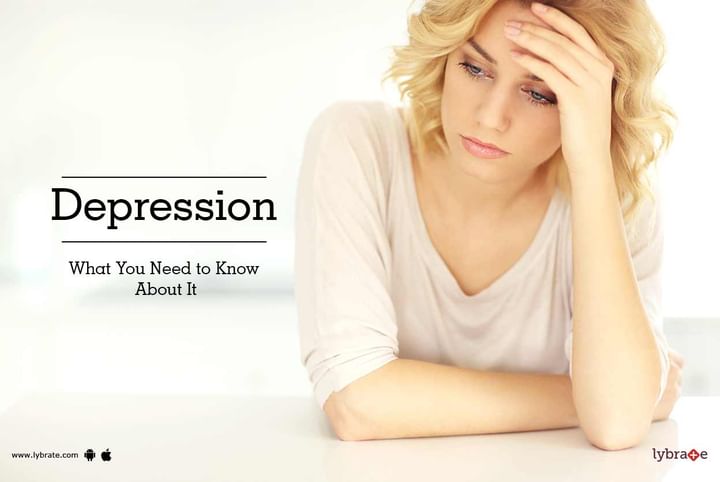Depression What You Need to Know About It
What is Depression?: It is a state of mind when a person feels very low, loses interest in routine daily activities, feels hopeless and helpless. Many times the person starts thinking about suicide. It is a very dangerous state and needs immediate intervention from Mental Health Professionals.
Assessment of Depression: Anyone feeling very sad cannot be called as a "depressed" person. To confirm the depression, the person needs to undergo assessment tests by either a Psychologist or a Psychiatrist. A "Depression Test" is carried out to see the exact intensity of depression.
Symptoms of Depression:
Feeling very sad all the time, continuously for more than 15 days: Feeling very sad continuously for a period of 15 days or more confirms depression. But just feeling sad sometimes is not depression.
- Crying for no specific reason: A depressed person may cry without any specific reason or provocation. The internal feeling of sadness is so intense, that the person cries without a good reason.
- Feeling worthless and hopeless: A depressed person has very low self esteem. The person thinks that he/she is useless, has no value and respect in the society. A depressed person feels hopeless. He/she thinks that 'this is the end of the world' and things cannot improve. The person does not have any hopes about future and may start thinking about committing suicide or may attempt suicide.
- Loss of interest in life: The person loses interest in life. Does not feel like taking part in any activities which she/he were interested in doing earlier. There is nothing to look forward to, in their life.
- Ignoring personal hygiene: The person is so disinterested in life that she/he becomes careless about personal hygiene. They may not take bath for days together, may not even change their clothes or comb their hair or brush their teeth and are least bothered about the general cleanliness.
- Sleep disorders: The depressed person may sleep all the time or may not be able to sleep at all, which affects their overall health.
- Eating disorders: The person with depressive symptoms may stop eating or eat very little or in some cases eat a lot.
- Lack of sexual desire: The person may lose interest in sex and stop interacting with the sexual partner or start avoiding them.
- Feeling like a loser all the time, not wanting to fight back: The person has no self confidence and hence loses all the faith in his/her own abilities. Does not believe that he/she can face difficult situations and also can fight back.
- Becoming antisocial: The person avoids meeting other people and does not interact with people at home.
Causes of Depression:
There are various factors, which may cause depression:
- Family history: A person who has a family history of depression is more likely to have depression. If any of the parents or grandparents were diagnosed with depression then the person is more susceptible to depression.
- Trauma: If a person has gone through a 'life changing' experience, it can cause depression. Situations, such as a sudden death of a loved one or in case of witnessing devastating natural disasters like earthquake or tsunami or a war survivor, someone who has experienced terrorist attack or when someone has suffered sexual or physical abuse etc. may cause depression.
- Health issues: If a person is having terminal illness, that can cause depression as the person has to endure lot of pain and has no hopes about recovery.
- Relationship problems: If a person is dissatisfied with his/her close relationships like relation with the spouse, parents, siblings or offsprings, then the person may feel like a failure and feels worthless, unwanted or betrayed.
- Financial issues: A person having any financial issue like not able to get a job or loss of job, incurring heavy losses in business or unable to earn enough money to satisfy the basic needs etc. might get depressed.
- Failures in life: Failure to pass an examination, failure to achieve targets/goals, failure in love affair etc.may result in depression.
- Treatment for Depression: Depression may fall in the category of mild, moderate and severe. But it is very important that the person gets assessed for the severity of depression.
- Assessment by a Psychiatrist/Psychologist/Counsellor: A person needs to be assessed by either a Psychiatrist or a Psychologist or a Counsellor, to understand the intensity of depression. These Mental Health Professionals may assess a person by talking to him/her and if required by applying certain 'Depression Assessment' tests.
- Medication and Counselling: In case of moderate to severe depression, a Psychiatrist will prescribe certain medication. Along with the medicines, counselling sessions work very well. In case of mild depression, only counselling also can be helpful.
- Depression is Treatable: If you come across someone with depressive symptoms, kindly advise them to seek help from a Counsellor, Psychologist or a Psychiatrist.



+1.svg)
